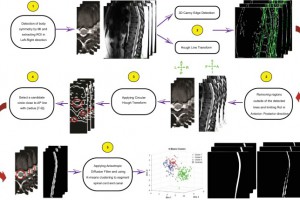High-impact workouts could stem dementia
Australian scientists are gathering evidence that the more hot and sweaty you get when you exercise, the better your chances of staving off dementia.
It has long been established that physical exercise goes a long way towards improving brain blood flow and protecting against brain shrinkage.
Regular workouts can reduce the risk of cognitive decline and may even go some way to improving cognitive function.
But researchers from Victoria University and Melbourne's Florey Institute are testing the theory that high-intensity interval training (HIIT) does a better job than low- or moderate-intensity exercise.
Dr James Broatch, who is leading the study, said there was preliminary evidence to suggest stressing the body at a higher intensity might carry added benefits over moderate exercise.
"Greater cardio-respiratory fitness is associated with lower dementia risk and improved cognition," he said.
About 459,000 Australians are living with dementia and this number is expected to almost triple by 2050.
While there is no known cure for dementia, recent population-based studies have identified nearly half of all cases may be associated with modifiable risk factors - like inadequate exercise.
Dr Broatch's large, quantitative study hopes to establish what the perfect "dose" of exercise is by asking cognitively normal, middle-aged Australians to participate in a 12-week exercise program.
Researchers will assess the program's effect on brain and peripheral blood flow.
Dementia Australia advises people to undertake at least 30 minutes of moderate-intensity continuous training, or MICT, most days of the week to reduce dementia risk.
But the time commitment required for moderate training could prove a barrier and HIIT might be able to elicit greater cardiovascular health benefits in the same time, Dr Broatch said.
"This study aim to test the hypothesis that HIIT may be a more effective exercise prescription than MICT to combat the dementia crisis," he said.
Naomi Ferstera, an exercise scientist from the University of Queensland, agreed HIIT had the potential to be beneficial for long-term brain health.
The high-intensity training was extremely effective at improving cardiorespiratory fitness, which was associated with good cognitive function, while also being time-efficient and potentially more enjoyable than other forms of exercise, she said.
"When it comes to the type of training, adherence is key, which means the best type of training is the type you will enjoy and continue to do," she said.
"The take-home message is any form of exercise at any dose is definitely going to be better than nothing. So find something you enjoy and don't stop doing it."





Related Posts